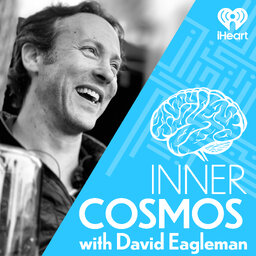Ep30 "What does it mean to know thyself in the age of neuroscience?" Part 2
Can we explain our rich experience of life only by studying the molecules that compose us? How is the color of your passport related to your chances of presenting with schizophrenia? Males are more predisposed to commit crime, so why don’t all males commit crime? And what does any of this have to do with traffic jams, why Seinfeld is funny, and how we’re ever going to come to know ourselves from studying biology? Join Eagleman to talk about levels of understanding, what a meaningful explanation would look like, and the possibility that we are not near the conclusion of science's journey, but instead near the beginning.
In 1 playlist(s)
Inner Cosmos with David Eagleman
Neuroscientist and author David Eagleman discusses how our brain interprets the world and what that …Social links
Follow podcast
Recent clips

Ep138 "Why do our political brains mistake opinion for truth?" with Kaizen Asiedu
1:07:52

Ep137 "Do cures ever create the next crisis?" with Thomas Goetz
47:09

Ep136 "Why do we care about mattering?" with Rebecca Goldstein
41:31
 Inner Cosmos with David Eagleman
Inner Cosmos with David Eagleman